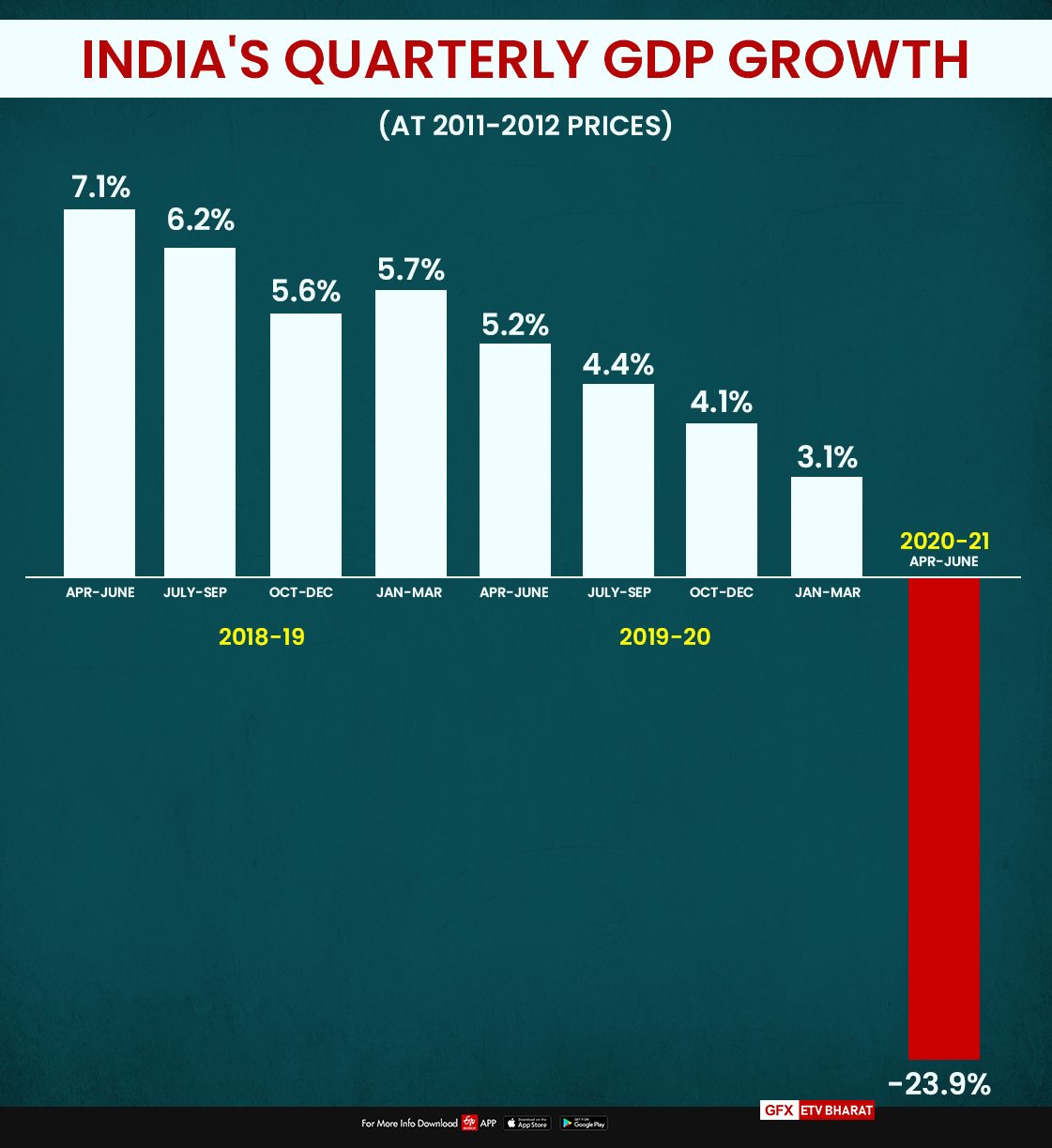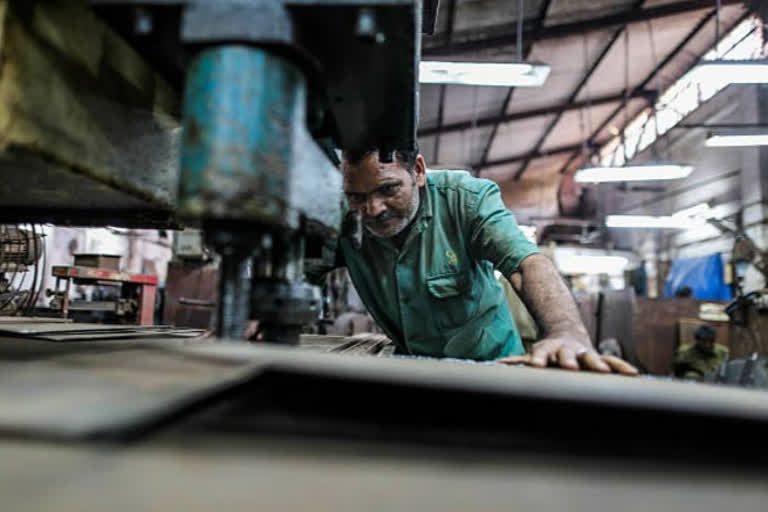New Delhi: The worst fears about a sharp contraction in India's economic growth during the April-June period turned out to be true when the country’s statistics office released the GDP growth data on Monday.
Official data confirmed that economic growth suffered the biggest contraction in over four decades, a negative growth of 23.9% in comparison with the GDP growth of 5.2% during the same period last year as the deadly virus ravaged the societies and business in a situation that is unprecedented in modern history.

“GDP at constant prices in the first quarter of FY 2020-21 is estimated at Rs 26.90 lakh crore, as against Rs 35.35 lakh crore during the same period last year, showing a contraction of 23.9 percent as compared to 5.2 percent growth during the same period last year,” said the National Statistics Office (NSO).
The data covers the period when the country was under a complete nationwide lockdown for two months – April and May – and also covers the month of June when the government started a gradual opening of socio-economic activity in the country from early June.
Read more:Eight core industries' output contracts 9.6% in July
As expected, some sectors have been hit more than others. But for most of the business and economic activity it was a complete wash out of three months.
The NSO said restrictions were imposed on the non-essential economic activities and also on the movement of people from 25 March with a view to contain spread of the Covid-19 pandemic.
The country’s apex statistics body said though the restrictions have been gradually lifted but it had an impact on the economic activity as well as on its data collection mechanism.
Transportation, automobile sectors worst hit
As expected the transportation sector was the worst hit, according to NSO data, Indian Railways passenger services were almost zero as they declined by 99.5%, while the data of the passengers handled at airports registered a decline of 94.1% and the cargo handled at airport declined by 57.2% and the cargo handled at major seaports declined by 19.8%.
Automobile sector was a natural victim of the Covid-19 lockdown with the commercial vehicle segment taking the biggest hit. The sale of commercial vehicles declined by 84.8% in comparison with their sale during the same period last year.
Similarly, the production and consumption of steel declined by 56.8% while production of cement declined by 38.3%, coal production declined by over 15%.
Closure of industrial units and large scale reverse migration of migrant workers severely impacted the manufacturing activity in the country which declined by 40.7%, production of metallic minerals declined by 43.3% while mining activity and electricity generation declined by 22.4% and 15.8% respectively.
In its assessment, the NSO also pointed out the inadequacy in the data as most of the timelines for filing statutory returns have also been extended by the authorities.
“In these circumstances, the usual data sources were substituted by alternatives like GST, interactions with professional bodies etc. and which were clearly limited,” the NSO added.
(Article by Krishnanand Tripathi)



